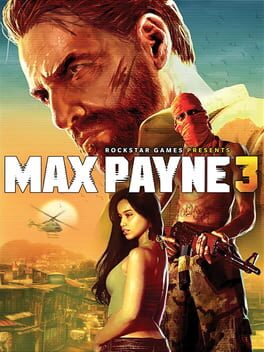There’s a little saying about this game which summarizes the situation beautifully: “Max Payne 3 is the sequel no one wanted; Max Payne 4 is the sequel everyone wants, but will never get“. Of course, you can’t blame fans for the initial skepticism, given how the game’s development was famously troubled, passing from studio to studio and undergoing delay after delay. On top of that, moving the narrative to Brazil seemed incredibly bizarre when the originals were entrenched in an iconic New York City noir, and had already resolved the conflict at the center of the story. It seemed like Max Payne 3 was just an attempt to slap a known brand on a different, lesser product in order to generate more sales, but this isn’t the entire truth. When you actually play it, it feels great, and was only eclipsed by Control seven years later for how spectacularly chaotic its gunfights are. The polish that went into every detail is staggering, making shots feel deadly through punchy sound design and environments that explode with reactive effects, along with a soundtrack that’s good enough to listen to on its own. Really, the only part that lets Max Payne 3 down is its confused handling of the series’ baggage, which is made all the more disappointing when Max is accompanied by a sidekick character who could have just been the protagonist himself, and allowed for a creatively unrestrained story. However, at this point there are a lot more constraints on making another sequel than just the narrative. Max Payne 3 had a budget of 105 million dollars, and it took a year to make that back by reaching four million copies sold. Meanwhile, Rockstar’s own Grand Theft Auto 5 cost 137 million dollars to develop, and is now the most profitable entertainment product ever after selling ~140 million units. No matter how much retroactive praise Max Payne gets, the likelihood for Rockstar to dedicate that level of production value to another linear campaign is slim when other investments are so much more promising.
However, that really might not be as bad as it sounds. Control is a particularly good point of reference for this discussion, because its creators, Remedy Entertainment, were the original people behind the Max Payne series. It’s not that the brand itself has a sacred property that gives it ownership of visually spectacular gunfights, or is the only intellectual property that can stand out with a stylized narrative presentation, these concepts are still moving on as strong as ever. The takeaway here isn’t to blame Max Payne 3’s awkward branding for killing the potential of its gameplay, but to recognize that these are two separate things in the first place. Other studios could make the Max Payne 4 that fans are begging for, even if it doesn’t have the same name attached. It’s all the more reason to celebrate and support smaller studios who are less beholden to make mega hits and can craft unique games without working their staff to death. That’s the sort of sequel that would respect the legacy of Max Payne more than an actual trademark ever could.
However, that really might not be as bad as it sounds. Control is a particularly good point of reference for this discussion, because its creators, Remedy Entertainment, were the original people behind the Max Payne series. It’s not that the brand itself has a sacred property that gives it ownership of visually spectacular gunfights, or is the only intellectual property that can stand out with a stylized narrative presentation, these concepts are still moving on as strong as ever. The takeaway here isn’t to blame Max Payne 3’s awkward branding for killing the potential of its gameplay, but to recognize that these are two separate things in the first place. Other studios could make the Max Payne 4 that fans are begging for, even if it doesn’t have the same name attached. It’s all the more reason to celebrate and support smaller studios who are less beholden to make mega hits and can craft unique games without working their staff to death. That’s the sort of sequel that would respect the legacy of Max Payne more than an actual trademark ever could.
